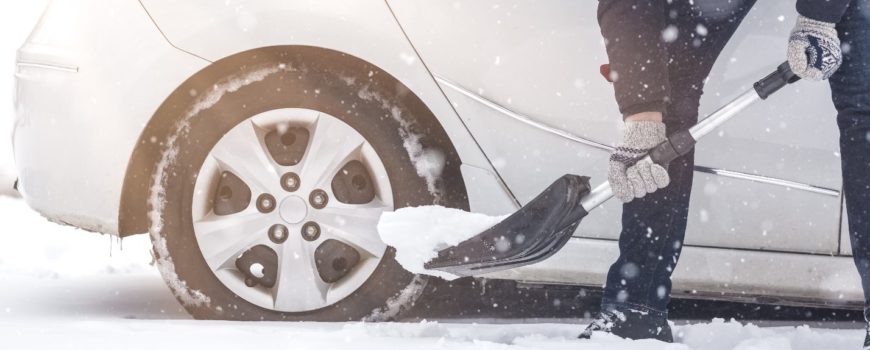If you already have all-season tires, you may think you don’t need winter tires for the snow and ice. Here’s how the two differ and what you should consider in the winter.
Few purchases matter more than ones made on your vehicle. No matter the age, make, or model, it has to get you from Point A to Point B safely every day. Unfortunately, many drivers lack detailed knowledge about how to properly care for their vehicles. Without seeing a dashboard indicator or feeling something unusual, smaller problems can accumulate without knowing what to look for.
And even if we feel tires are fairly straightforward — especially compared to the intricacies of an engine or transmission — there are plenty of factors that can limit performance. After all, your tires are your connection to the road, meaning the spectrum of conditions drivers encounter make tires an essential consideration.
Unfortunately, many Americans are unaware of the options at their disposal when it comes to tires, settling for whatever was on the vehicle when they bought it. But making specific tire purchases — based on something as simple as the seasons — can have a noticeable impact on both safety and comfort.
Let’s consider the differences between winter tires with all-season options and break down whether buying specific snow tires are worth the money.
Winter Tires vs. All-Season Tires
Much as they sound, the difference between winter tires and all-season tires comes down to the season in which they can best help performance and safety.
Winter tires are designed specifically for the elements associated with winter weather — snow, ice, slush, and cold road temperatures. Similarly, summer tires are designed for hotter temperatures.
The most distinct attributes winter tires offer include deep grooves — called “sipes” — and specialized tread patterns to provide more traction on snow-covered roads. Other tires can become stiff as temperatures drop. But snow tires are also made of softer, more flexible rubber material to maintain performance in colder temperatures.
All-season tires, which often come with a newly-bought car, are essentially a combination of the attributes boasted by winter and summer tires. Along with the sipes on the inner tire for snow and slush, it offers the outside tread commonly found in summer tires. They are made to handle both dry and wet conditions and any temperature outside of the extreme. In many circumstances, it’s the best of both worlds.
So which tires should you choose? That mostly comes down to personal preference, though geography could certainly simplify the decision.
All-season tires are common for a reason — they get the job done in most climates and at most times. But for drivers in colder climates such as New England or the Upper Midwest, changing out to winter tires may be a necessary investment to withstand extreme conditions or prolonged periods of freezing temperatures and snowy roads.
Do I Have To Get New Wheels to Use Winter Tires?
Not necessarily, but it could be the preferred option for some drivers.
Swapping out your wheels for the winter could protect your usual wheels from the elements, especially if they are extreme enough for you to consider new tires in the first place. However, making that decision means accepting a few trade-offs.
Of course, cost would be a factor. Purchasing new wheels along with winter tires could be a sizeable initial cost. If you aren’t comfortable changing out wheels yourself, plan to spend some money each winter to get them changed at a tire or auto shop. You’ll also need space to store whichever tires aren’t in use in a given season.
Lastly, consider the size of the wheels and tires you are purchasing. Most vehicles can accommodate at least a few wheel sizes. Be sure to do your research to ensure the tire and wheel sizes not only match but are also the best option for your needs.
What Are The Best Winter Tire Options?
If opting to swap out your tires in the winter, there are several good options. Many of the largest tire brands offer winter tires.
Some of the most popular include Pirelli’s Winter Sottozero 3, Bridgestone’s Blizzak WS80 or the newer WS90, and the Michelin X-Ice Xi3. Winter tires can vary in price depending on several factors, but it’s always worth spending some time to talk with the person selling them about their insights about what’s best for your car and the season.
If needing a convenient option to find tires and tire services near you, be sure to ask about the options available in your area.

